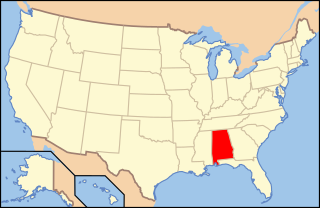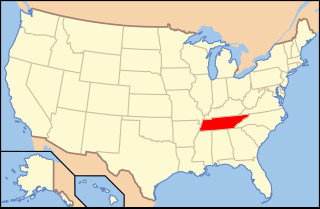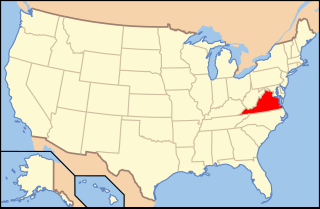
Title IX is a landmark federal civil rights law in the United States that was enacted as part of the Education Amendments of 1972. It prohibits sex-based discrimination in any school or any other education program that receives funding from the federal government. This is Public Law No. 92‑318, 86 Stat. 235, codified at 20 U.S.C. §§ 1681–1688.

James Andrew Wynn Jr. is an American jurist. He serves as a United States circuit judge of the United States Court of Appeals for the Fourth Circuit and formerly served on both the North Carolina Court of Appeals and the North Carolina Supreme Court.

The rights of lesbian, gay, bisexual, and transgender (LGBT) people in the U.S. state of Utah have significantly evolved in the 21st century. Protective laws have become increasingly enacted since 2014, despite the state's reputation as socially conservative and highly religious. Utah's anti-sodomy law was invalidated in 2003 by Lawrence v. Texas, and fully repealed by the state legislature in 2019. Same-sex marriage has been legal since the state's ban was ruled unconstitutional by federal courts in 2014. In addition, statewide anti-discrimination laws now cover sexual orientation and gender identity in employment and housing, and the use of conversion therapy on minors is prohibited. In spite of this, there are still a few differences between the treatment of LGBT people and the rest of the population, and the rights of transgender youth are restricted.

Paul Victor Niemeyer is a United States circuit judge of the United States Court of Appeals for the Fourth Circuit and a former United States District Judge of the United States District Court for the District of Maryland.
Gloucester County Public Schools is a Virginia public school division serving Gloucester County, Virginia.

Henry Franklin Floyd is a senior United States circuit judge of the United States Court of Appeals for the Fourth Circuit.
In the United States, the rights of transgender people vary considerably by jurisdiction. In recent decades, there has been an expansion of federal, state, and local laws and rulings to protect transgender Americans; however, many rights remain unprotected, and some rights are being eroded. Since 2020, there has been a national movement by conservative/right-wing politicians and organizations to target transgender rights. There has been a steady increase in the number of anti-transgender bills introduced each year, especially in Republican-led states.

Lesbian, gay, bisexual, and transgender (LGBT) individuals in the U.S. state of Alabama have federal protections, but still face legal challenges and discrimination on the state level that is not experienced by non-LGBT residents. LGBT rights in Alabama—a Republican Party stronghold located in both the Deep South and greater Bible Belt—are severely limited in comparison to other states. As one of the most socially conservative states in the U.S., Alabama is one of the only two states along with neighboring Mississippi where opposition to same-sex marriage outnumbers support.

Lesbian, gay, bisexual, and transgender (LGBT) people in the U.S. state of Florida have federal protections, but many face legal difficulties on the state level that are not experienced by non-LGBT residents. Same-sex sexual activity became legal in the state after the U.S. Supreme Court's decision in Lawrence v. Texas on June 26, 2003, although the state legislature has not repealed its sodomy law. Same-sex marriage has been legal in the state since January 6, 2015. Discrimination on account of sexual orientation and gender identity in employment, housing and public accommodations is outlawed following the U.S. Supreme Court's ruling in Bostock v. Clayton County. In addition, several cities and counties, comprising about 55 percent of Florida's population, have enacted anti-discrimination ordinances. These include Jacksonville, Miami, Tampa, Orlando, St. Petersburg, Tallahassee and West Palm Beach, among others. Conversion therapy is also banned in a number of cities in the state, mainly in the Miami metropolitan area, but has been struck down by the 11th Circuit Court of Appeals. In September 2023, Lake Worth Beach, Florida became an official "LGBT sanctuary city" to protect and defend LGBT rights.

Barbara Lagoa is an American attorney and jurist serving as a United States circuit judge of the United States Court of Appeals for the Eleventh Circuit. Prior to becoming a federal judge, she was the first Latina and Cuban American woman appointed to serve as a justice of the Supreme Court of Florida.

Lesbian, gay, bisexual, and transgender (LGBT) people in the U.S. state of Indiana enjoy most of the same rights as non-LGBT people. Same-sex marriage has been legal in Indiana since October 6, 2014, when the U.S. Supreme Court refused to consider an appeal in the case of Baskin v. Bogan.

Lesbian, gay, bisexual, and transgender (LGBT) people in Tennessee may experience some legal challenges that non-LGBT residents do not. Same-sex sexual activity has been legal in the state since 1996. Marriage licenses have been issued to same-sex couples in Tennessee since the Supreme Court ruling in Obergefell v. Hodges on June 26, 2015.

Lesbian, gay, bisexual, and transgender (LGBT) people in the U.S. state of Virginia enjoy the same rights as non-LGBT people. LGBT rights in the state are a recent occurrence with most improvements in LGBT rights occurring in the 2000s and 2010s. Same-sex marriage has been legal in Virginia since October 6, 2014, when the U.S. Supreme Court refused to consider an appeal in the case of Bostic v. Rainey. Effective July 1, 2020, there is a state-wide law protecting LGBT persons from discrimination in employment, housing, public accommodations, and credit. The state's hate crime laws also now explicitly include both sexual orientation and gender identity.

Lesbian, gay, bisexual, and transgender (LGBT) people in the U.S. state of South Carolina may face some legal challenges not experienced by non-LGBT residents. Same-sex sexual activity is legal in South Carolina as a result of the U.S. Supreme Court decision in Lawrence v. Texas, although the state legislature has not repealed its sodomy laws. Same-sex couples and families headed by same-sex couples are eligible for all of the protections available to opposite-sex married couples. However, discrimination on the basis of sexual orientation and gender identity is not banned statewide.

Lesbian, gay, bisexual, and transgender (LGBT) people in the U.S. state of Kansas have federal protections, but many face some legal challenges on the state level that are not experienced by non-LGBT residents. Same-sex sexual activity is legal in Kansas under the US Supreme Court case Lawrence v. Texas, although the state legislature has not repealed its sodomy laws that only apply to same-sex sexual acts. The state has prohibited discrimination on the basis of sexual orientation and gender identity in employment, housing and public accommodations since 2020. Proposed bills restricting preferred gender identity on legal documents, bans on transgender people in women's sports, bathroom use restrictions, among other bills were vetoed numerous times by Democratic Governor Laura Kelly since 2021. However, many of Kelly's vetoes were overridden by the Republican supermajority in the Kansas legislature and became law.
A bathroom bill is the common name for legislation or a statute that denies access to public toilets by gender or transgender identity. Bathroom bills affect access to sex-segregated public facilities for an individual based on a determination of their sex as defined in some specific way, such as their sex as assigned at birth, their sex as listed on their birth certificate, or the sex that corresponds to their gender identity. A bathroom bill can either be inclusive or exclusive of transgender individuals, depending on the aforementioned definition of their sex.
Title IX of the United States Education Amendments of 1972 prohibits discrimination "on the basis of sex" in educational programs and activities that receive financial assistance from the federal government. The Obama administration interpreted Title IX to cover discrimination on the basis of assigned sex, gender identity, and transgender status. The Trump administration determined that the question of access to sex-segregated facilities should be left to the states and local school districts to decide. The validity of the executive's position is being tested in the federal courts.

G.G. v. Gloucester County School Board was a court case dealing with transgender rights in the United States. The case involved a transgender boy attending a Virginia high school, who sued the local school board after he was forced to use girls' restrooms based on his assigned gender under the school board's policy. While the Fourth Circuit ruled in favor of the student based on Obama administration policy related to Title IX protections, the election of Donald Trump changed the underlying policy. A pending hearing before the Supreme Court of the United States was vacated and the case was sent back to the Fourth Circuit.
The legal and regulatory history of transgender and transsexual people in the United States begins in the 1960s. Such legislation covers federal, state, municipal, and local levels, as well as military justice. It reflects broader societal attitudes which have shifted significantly over time and have impacted legislative and judicial outcomes.
Since 2015, Township High School District 211, a public school district of the Chicago suburbs, has been the epicenter of multiple controversies surrounding its policies toward transgender student locker room access. Since January 2020, the district has implemented a policy of unrestricted locker room access corresponding to the gender identity of each student.














